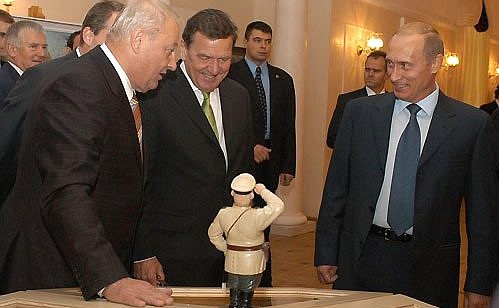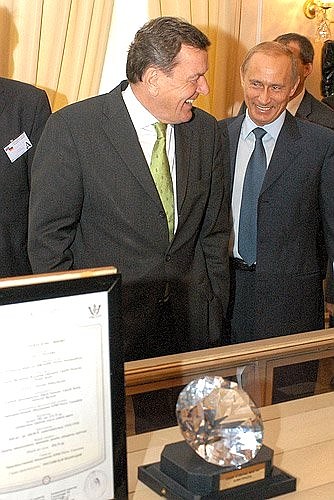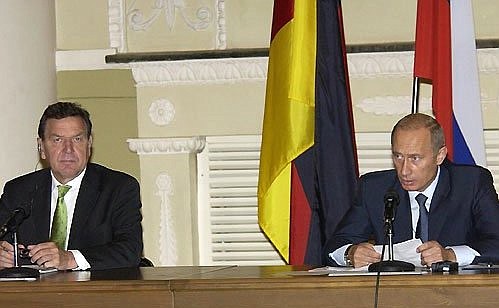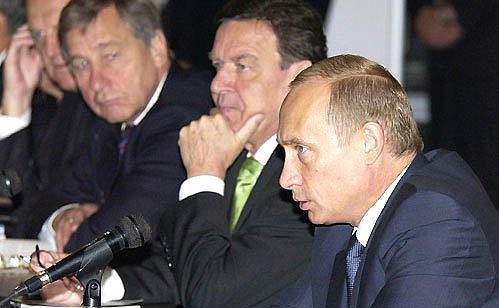In his speech Mr Putin confirmed that the relations between the two countries had a strategic character because they pursued long-term goals.
Germany remains Russia’s main foreign trade partner outside the CIS, the President said. He cited some statistics: mutual trade in the first half of 2003 amounted to 12 billion euros and in 2002 to 24.3 billion euros; German investments in Russia account for more than 17% of the total volume of investments.
Mr Putin expressed hope that the Russian businessmen who wanted to work in the Russian market will have the German government’s support. He said that there were over 2,000 companies with German participation in Russia today. Russian businessmen are willing to create new production cooperation schemes and invest their capitals in them, he noted.
The President also spoke in favour of expanding cooperation in science-intensive areas calling for broader regional cooperation.
During the discussion Mr Putin drew attention to the fact that energy issues were among the main obstacles in the negotiations with the European Union on Russia’s accession to the WTO. In connection with this, he stressed that the Russian economy cannot instantly switch to world energy prices as the EU wants it to. Such a radical change threatens an economic collapse.
Mr Putin stressed that Russia’s internal energy prices should approach world prices gradually, and the issue should not be discussed as part of Russia’s accession to the WTO but in a bilateral dialogue with the EU.



